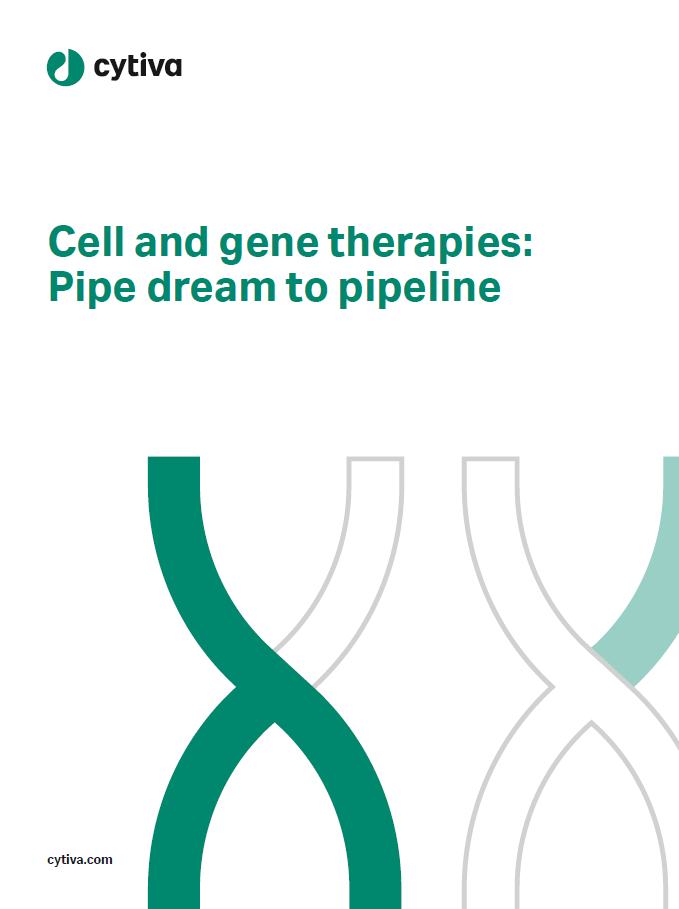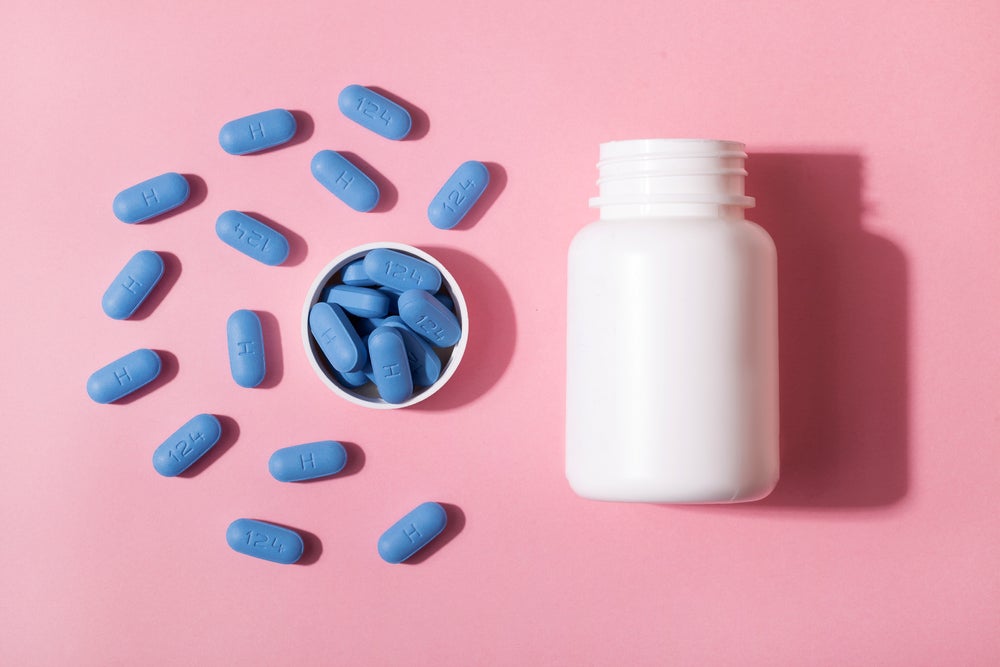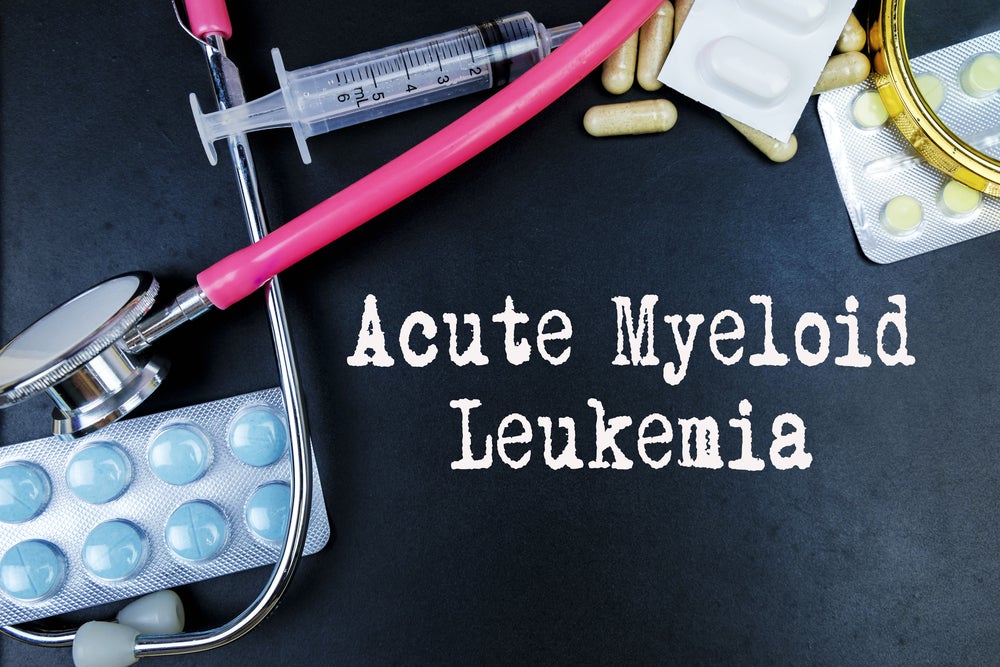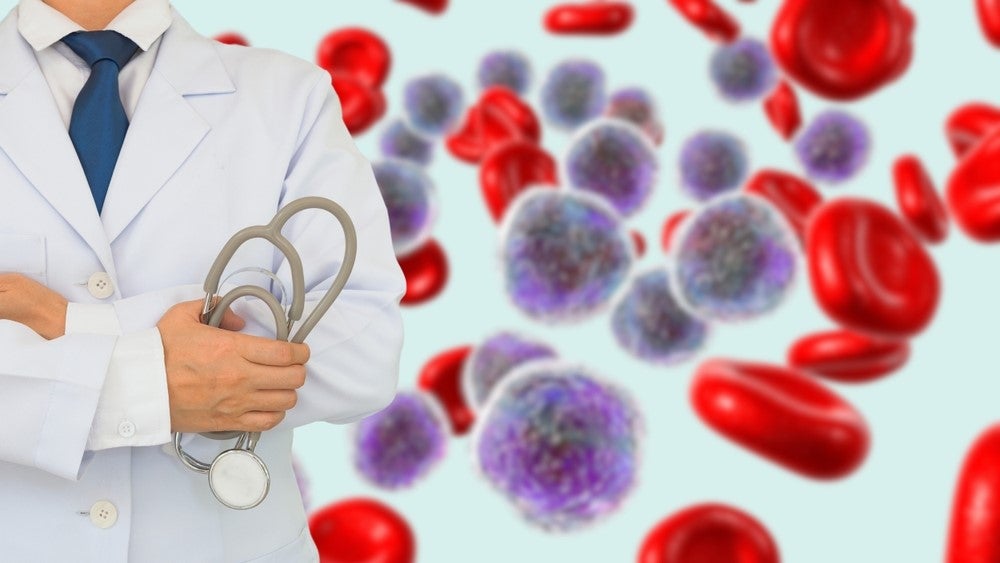

Patients with Acute Myeloid Leukemia (AML) can sit on waiting list for months on end for a donor. After the elation of getting the call that they have a match and receiving a transplant, the elation can quickly change when the cells are rejected due to graft versus host disease (GvHD) or contract an infection.
GvHD is a systemic disorder that occurs when the graft’s immune cells recognise the host as foreign and attack the recipient’s body cells. Being able to reduce the occurrence of GvHD is an unmet need in AML and something which precision medicine could assist with.
According to analysis published by GlobalData in September 2023, a patient-based forecast places the market value for cell therapies in AML at $708 million in the 8MM (US, 5EU, Japan, and China) by 2032. GlobalData is the parent company of Clinical Trials Arena.
Cell therapies are used as supportive products after hematopoietic stem cell transplants (HSCT) that aim to either speed up haematopoietic recovery or prolong GvHD relapse-free survival.
Gamida Cell’s omidubicel, marketed as Omisirge, is the first cell therapy on the market for AML patients attempting to target GvHD recurrence. The product was given the nod by the US Food and Drug Administration (FDA) in April 2023. Omisirge improves the efficacy of bone marrow transplant for hematologic malignancies.
Dr Sandeep Nayak, from MACS Clinic in Bengaluru, India, says that the development of these cell therapies will improve patient outcomes if proved efficacious. “Patients and families need to understand that while these developments are promising, they are still under investigation,” Nayak says.
How well do you really know your competitors?
Access the most comprehensive Company Profiles on the market, powered by GlobalData. Save hours of research. Gain competitive edge.

Thank you!
Your download email will arrive shortly
Not ready to buy yet? Download a free sample
We are confident about the unique quality of our Company Profiles. However, we want you to make the most beneficial decision for your business, so we offer a free sample that you can download by submitting the below form
By GlobalDataWill Orca-T give Omisirge a run for its money?
Orca Biosystems’s TRGFT-201, also known as Orca-T, is the next product which could make it to market. A Phase III trial investigating the candidate is due to meet primary completion in April 2024. Orca-T is an engineered allogeneic peripheral blood product that comprises purified donor-derived regulatory T-cell plus CD34 and haematopoietic progenitor cells.
The Precision-T trial (NCT05316701) is investigating patients with advanced haematologic malignancies undergoing allogeneic hematopoietic cell transplantation with either TRGFT-201 with additional infusion of conventional T-cells and regulatory T-cells, or standard-of-care allogeneic graft.
The trial plans to enrol 174 patients from 20 sites across the US. The primary endpoint for the study is chronic GvHD free survival through 730 days post HSCT.
“If successful, this therapy could provide a much-needed treatment option for patients who have failed other therapies,” said Dr Garvit Chitkara, head of Breast Cancer Surgical Unit at Nanavati Max Institute of Cancer Care in Mumbai, India.
Professor Arnon Nagler, president of the Hemato-Oncology Center at Sheba Medical Centre in Israel said Orca-T has already shown promise at an early stage. “The results are looking very promising – very low transplant related mortality, very low GvHD and without post-transplant immunosuppression. I think that this is a very promising and sophisticated way to do a transplant.”
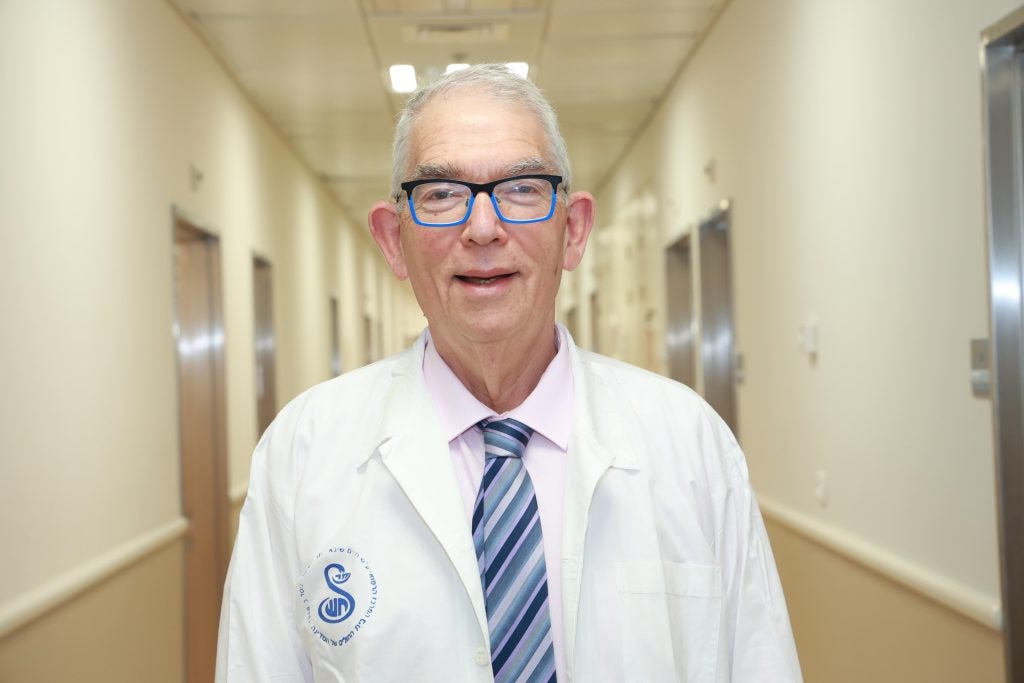
Other candidates are looking to target GvHD relapse
One of the biggest complications for AML patients is relapse as a result of GvHD. There are two cell therapies, zelenoleucel and dilanubicel which aim to either speed up hematopoietic recovery but also have an additional focus on extending overall survival by virtue of reducing GvHD relapse.
Marker Therapeutics‘s Zelenoleucel is coming to the end of a Phase II trial and hopes to fill a gap in the market by the chance reducing GvHD relapse over other cell therapies. Zelenoleucel is an allogeneic cellular immunotherapy which constitutes donor-derived multi tumor-associated antigen (TAA)-specific T cells and is intended for use as a maintenance therapy after HSCT.
The Phase II trial (NCT04511130) is investigating the efficacy of the candidate following stem cell transplant. Referred to as the ARTEMIS trial, which is due to end in July 2024, the primary endpoint is the number of participants with MT-401 dose limiting toxicities.
“With Zelenoleucel, the fact that it’s being developed by Marker Therapeutics a company specialising in cell-based cancer immunotherapies, is noteworthy and suggests a focus on innovative treatment approaches,” says Nayak.

According to Shriya Das, who previously worked in clinical trial optimisation at Advenchen Laboratories before taking a role with Compass Pathways, the candidate could also be efficacious in other complex malignancies. “This trial is pivotal in establishing the therapy’s efficacy and safety profile,” says Das. “Its success in clinical trials could bring forth an innovative, targeted approach to treating AML and other complex malignancies, representing a major advancement in the field of immuno-oncology.”
Coeptis Therapeutics’s dilanubicel is another cell therapy candidate which is also working to reduce relapse of GvHD. Dilanubicel is also an allogeneic therapy that constitutes universal donor ex-vivo expanded cord blood progenitor and hematopoietic stem cells. It is based on ex-vivo expanded umbilical cord blood platform.
An investigator-led Phase II trial (NCT03399773), being conducted by Fred Hutchinson Cancer Research Centre in Seattle, Washington, is evaluating the candidates safety and efficacy of infusion alongside single cord blood transplantation for patients with hematologic malignancies.
The primary endpoint of the study is incidence of graft failure up to day 45 post-transplant. The trial is investigating the candidate in patients aged between 10 and 65 and the centre plans to enrol 15 patients in the study which is estimated to end in August 2024.
“In order not to GvHD you have to deplete the naive T-cells from the graft and this is what the dilanubicel trial is doing,” Nagler comments. “Usually the main cause of transplant failure after transplant is a relapse with the other main causes being GvHD and infection and this candidate should reduce the risk of complication post-transplant.”
Gamma-Delta cell therapies would eliminate GvHD but come with other risk
TC BioPharm’s trial was due to complete in May 2023 but due to difficulties the company has faced, they announced successful completion of the safety cohort and achieved positive review from the Data Safety Monitoring Board (DSMB) in the ACHIEVE trial on 14 November 2023. The company plans to enroll more patients in Q1 2024 as part of the Phase IIb study but it is not yet clear what the completion date will be.
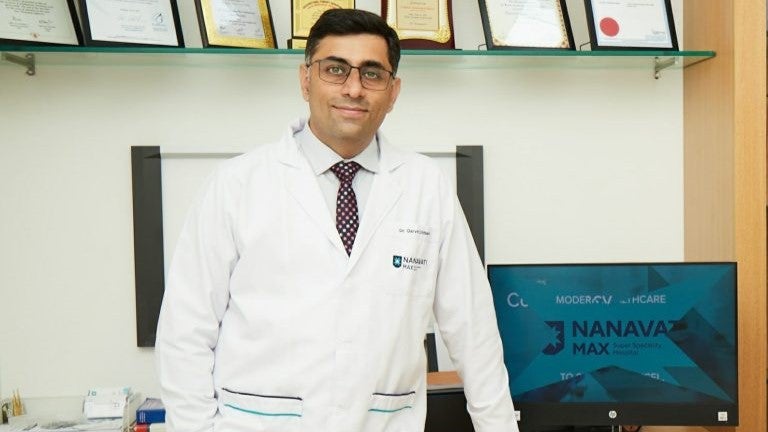
TC’s OmnImmune is an allogeneic cell therapy, bringing in unmodified, young and activated gamma delta T-cells into patients’ bodies to eliminate leukemic cells. As a candidate for stabilising the disease, there are concerns among specialists, mostly due to the introduction of HSCT-enabling agents like iodine-131-apamistamab. On the flip side, it is considered to be safer for patients as it eliminates the possibility of GvHD incidence due to its mechanism of action (MoA).
Explaining the process in which the candidate works, Nagler says: “The Gamma-Delta T-cells are cells that don’t cause GvHD and fight the tumour like NK cells. You need to separate Gamma-Delta cells to get them pure then you expand them with cytokines.”
What is the future for AML therapies?
According to the September 2023 report by GlobalData, there are 92 pipeline products in active development for AML, 12 of which are cellular therapies. In total, there are 15 late-stage pipeline therapies, with a multitude of modalities including cell therapies, targeted radiotherapies, and cancer vaccines.
According to Das if cell therapies are successful, they will not be limited to just AML but other haematological malignancies “The successful completion and approval of these trials could significantly impact the therapeutic landscape, bringing new hope and improved treatment options to patients with the challenging haematological malignancy,” Das comments.
And Nagler believes that investigators are now pinning down the best methods to treat patients. “In AML it’s more difficult, and even more difficult in solid tumour but for me, it’s no question that the future is immunotherapy, either monoclonal antibody or CAR T-cell therapy.”
However, ultimately, Chitkara highlights how the main goal is to improve outcomes for patients. “As an oncologist, I am hopeful that with ongoing advancements in medicine and technology, we will eventually be able to find a cure for AML.”
Cell & Gene Therapy coverage on Clinical Trials Arena is supported by Cytiva.
Editorial content is independently produced and follows the highest standards of journalistic integrity. Topic sponsors are not involved in the creation of editorial content.


